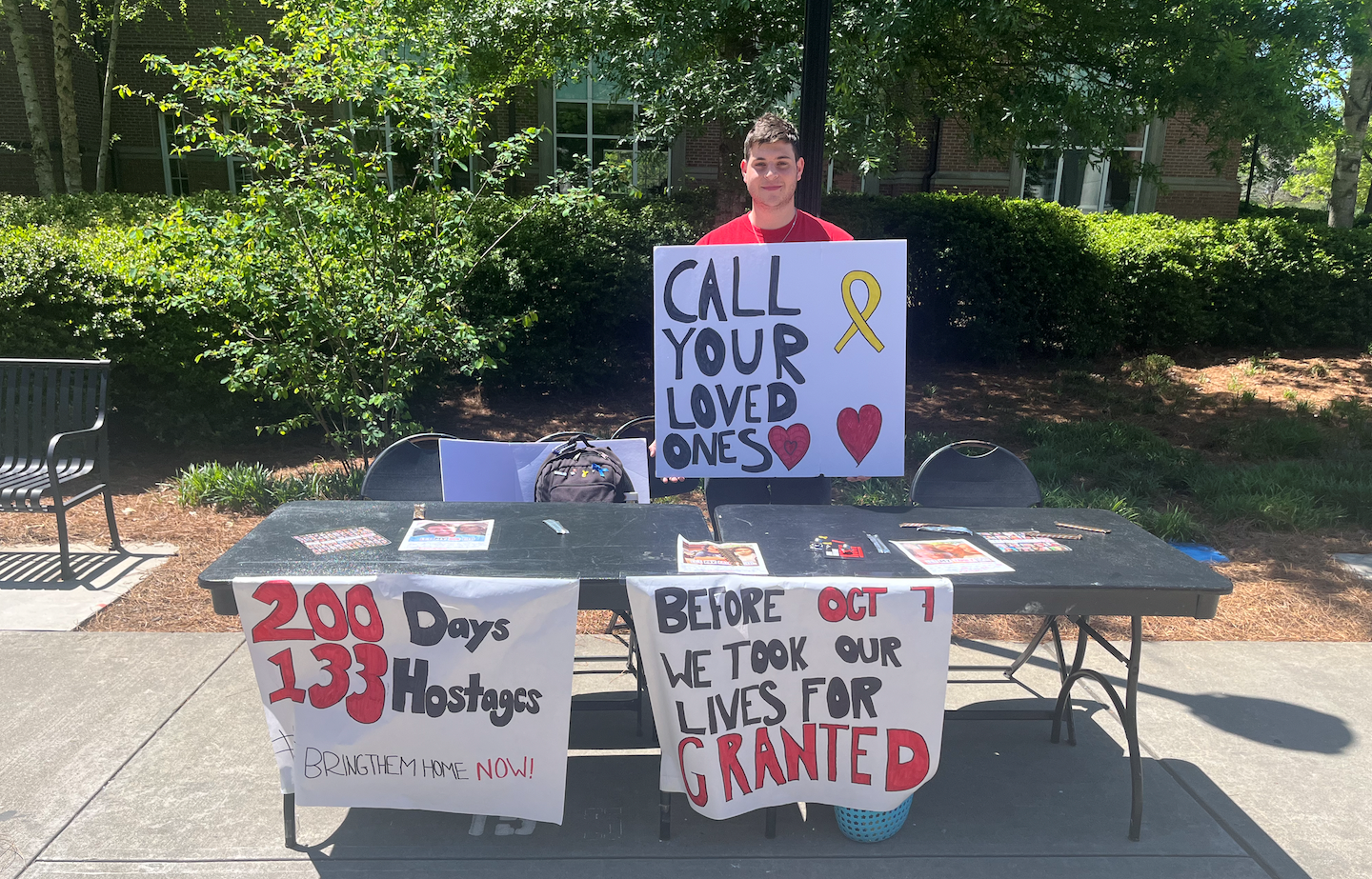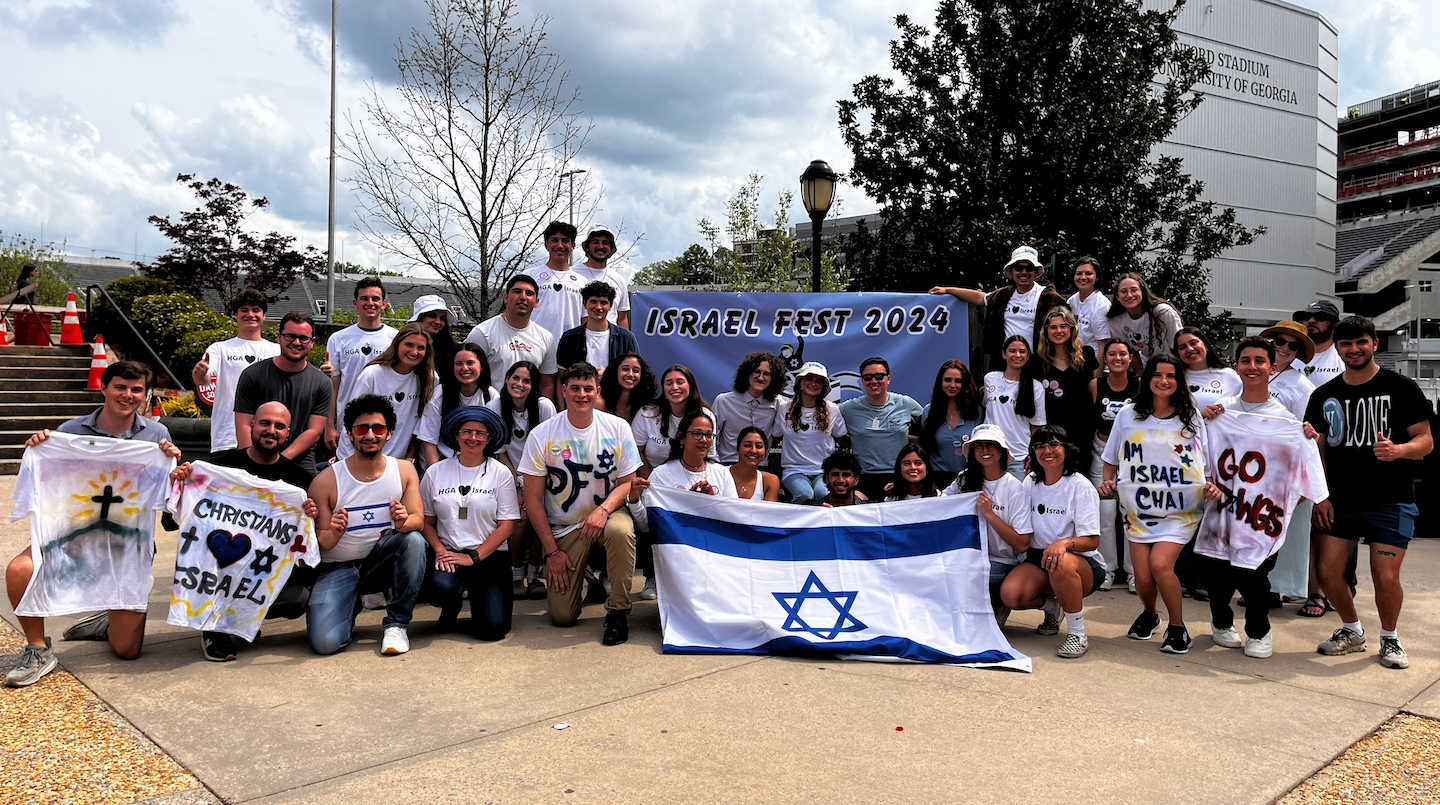Because of You, Jewish College Students Find Solace at Hillel
Over the past several months, we have all watched with worry as college campuses have been taken over by anti-Israel hate, fear-mongering, and aggression. But in this darkness, Hillels of Georgia has become a safe haven for Jewish students in need of support, guidance, and empowerment.
This is Ron’s story of how Hillel got him through this trying time.

“I am a 21-year-old junior at the University of Georgia (UGA) and President of Dawgs for Israel within Hillel. Being a Jewish college student on campus right now has been really difficult. Jewish students around the country have seen awful things and have been put in very uncomfortable situations. On my campus specifically, we had an assault case with a student being pushed to the ground and verbally harassed. It takes a lot of mental strength to be a Jewish student right now. Every day you wake up and your phone’s filled with messages, whether it’s about something that’s happening on campus next to you, whether it’s a protest or a BDS vote…it just becomes very mentally draining.
These anti-Israel protestors break school policies consistently and there seem to be no consequences. We’re constantly sending emails addressing broken policies and it feels like nothing’s being done. I think the communication from UGA, and quite frankly, all administration around the country, has been very poor. The Red and Black, an independent, student-led, nonprofit news organization, serving the UGA and Athens communities, had zero posts about Israel Week, zero journals about Israel Fest, and zero journal entries about nearly every event that HillelUGA put on that semester. But at minimum, there were five articles about the anti-Israel protests. Even the UGA affiliate newspaper has almost been taken as a pawn in this movement. There seems to be very biased reporting on their end.
After October 7th, I felt lost and I didn’t really know what to do. But HillelUGA and its community has gotten me through. Being Jewish and Israeli is so special because no matter how sad and how stressed everyone is, we’re always able to find time to help each other as a community. The morning the encampments popped up on UGA’s campus, I received about 30 texts. Many students didn’t know if they could go to class that day. I’m a six foot two, 200-pound guy, so I’ve never personally felt physically threatened, but I still didn’t feel very safe or comfortable going to class when right outside my building, people were calling for revolutions against me and for intifadas, all while they are banging drums and chanting.
After October 7th, we were all struggling. No one was going to class. No one was thinking about exams. No one was thinking about what projects they had. I was trying to think of ways we could create a forum where people could come together and share openly about how they were feeling. I reached out to Jeremy Lichtig, the Campus Director at HillelUGA, and asked for a budget for coffee. I texted the student group chats and told them to meet at a particular coffee shop. The idea was simple: Let us get you a pastry, let us get you a coffee, and let’s talk about it. The last thing that we need is for people to stay silent and suppress these emotions because that’s when mental health issues come to light.
Doing homework at Hillel versus in the main library on campus made a difference for me, too. It’s been very helpful being around like-minded students who feel the same and have ties to people in Israel who have been affected by the war. At Hillel, much of the time, we didn’t even need to speak about it; just being together was enough. It was literally just, hey, come in, there are snacks, there is coffee, come do your homework. And that’s what I did.
Hillel’s devoted staff was always willing to drop everything they were working on to go pick you up to get coffee, to get lunch, and to talk to you. If you came in and you were having a bad day, they’d go have a one-on-one with you and ask how they can support you. That’s been very impactful. The Jewish experience on campus is very different from what it was last year. I don’t want to think about where Jewish students would be right now if we didn’t have Hillel and if we didn’t have those ties to the community. I really am so grateful.”
